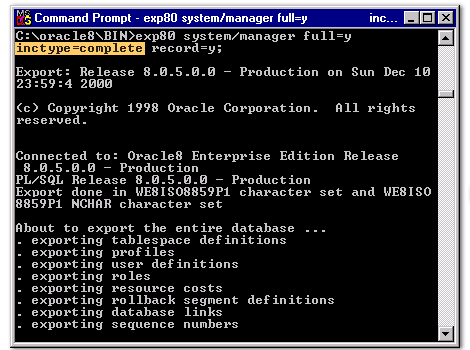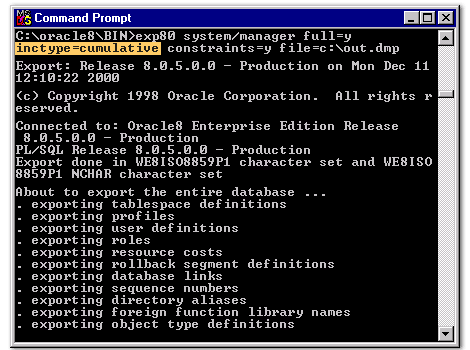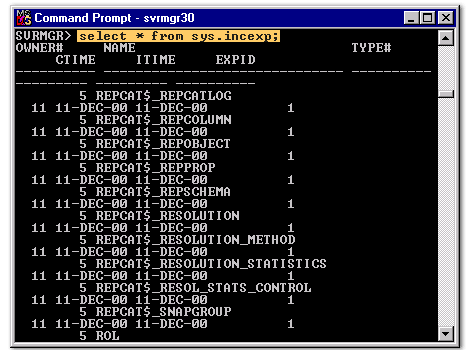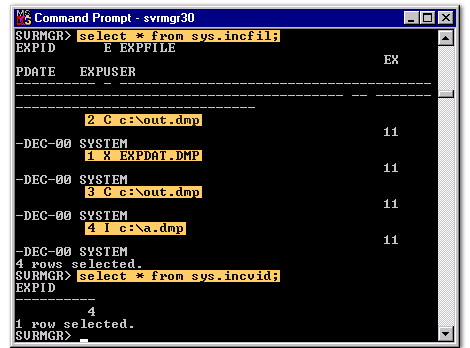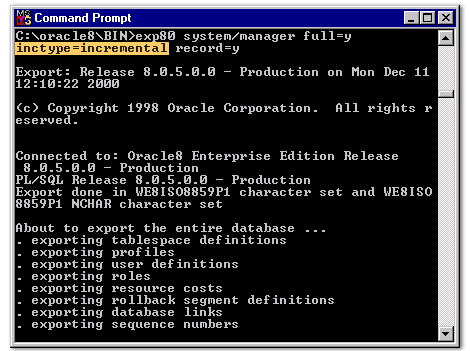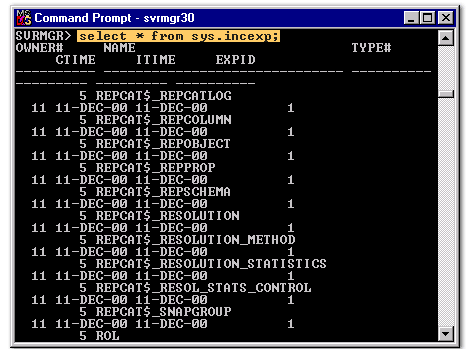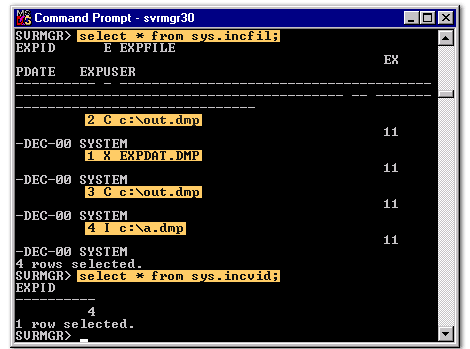Using Export to create incremental backups
Full export screenshots
Full Export Mode
Metadata Filters
The EXCLUDE and INCLUDE parameters are mutually exclusive. Metadata filters identify a set of objects to be included or excluded from an Export or Import operation. For example, you could request a full export, but without Package Specifications or Package Bodies. To use filters correctly and to get the results you expect, remember that dependent objects of an identified object are processed along with the identified object. For example, if a filter specifies that an index is to be included in an operation, then statistics from that index will also be included. Likewise, if a table is excluded by a filter, then indexes, constraints, grants, and triggers upon the table will also be excluded by the filter. If multiple filters are specified for an object type, an implicit AND operation is applied to them. That is, objects pertaining to the job must pass all of the filters applied to their object types.
The same metadata filter name can be specified multiple times within a job. To see which objects can be filtered, you can query the following views:
- DATABASE_EXPORT_OBJECTS for Full-mode exports,
- SCHEMA_EXPORT_OBJECTS for schema-mode exports, and
- TABLE_EXPORT_OBJECTS for table-mode and tablespace-mode exports.
SQL> SELECT OBJECT_PATH, COMMENTS FROM SCHEMA_EXPORT_OBJECTS 2 WHERE OBJECT_PATH LIKE '%GRANT' AND OBJECT_PATH NOT LIKE '%/%';The output of this query looks similar to the following:
OBJECT_PATH -------------------------------------------------------------------------------- COMMENTS -------------------------------------------------------------------------------- GRANT Object grants on the selected tables OBJECT_GRANT Object grants on the selected tables PROCDEPOBJ_GRANT Grants on instance procedural objects PROCOBJ_GRANT Schema procedural object grants in the selected schemas ROLE_GRANT Role grants to users associated with the selected schemas SYSTEM_GRANT System privileges granted to users associated with the selected schemas
